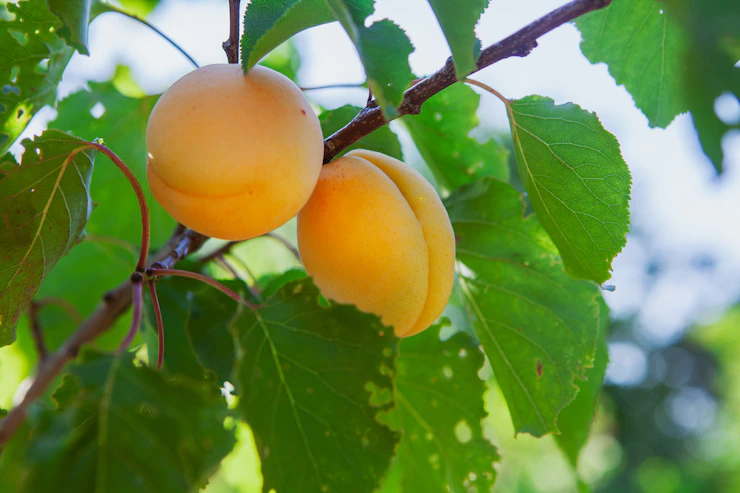When growing apricots in South Africa, there are several infections and diseases that you should watch out for. Here are some common ones:
- Bacterial Canker (Pseudomonas syringae): Bacterial canker affects apricot trees, causing sunken cankers on branches, trunk, and fruit. The affected areas may have a gum-like exudate. Pruning infected branches and applying copper-based sprays during the dormant season can help manage this disease.
- Brown Rot (Monilinia spp.): Brown rot is a fungal disease that affects apricot fruit. It causes brown, rotting lesions with a fuzzy appearance. Good orchard sanitation, timely harvest, and the use of fungicides can help control brown rot.
- Leaf Curl (Taphrina deformans): Leaf curl is a fungal disease that causes curling, distortion, and reddening of apricot leaves. Infected leaves may drop prematurely, affecting tree health and fruit production. Copper-based sprays applied during the dormant season can help control leaf curl.
- Shot Hole (Wilsonomyces carpophilus): Shot hole is a fungal disease that affects apricot leaves and fruit. It causes circular lesions on leaves, which later fall out, leaving “shot holes.” Infected fruit also develops circular, corky lesions. Fungicide sprays during the dormant season and after petal fall can help manage shot hole.
- Root Rot (Armillaria spp.): Root rot is a fungal disease that affects apricot trees’ root system. It can cause root decay, reduced vigor, and eventual tree decline. Planting in well-drained soil and avoiding excessive irrigation can help prevent root rot.
- Virus Diseases: Various viruses, such as apricot latent virus (ApLV) and apricot chlorotic leaf roll virus (ACLRV), can affect apricot trees in South Africa. These viruses can cause stunted growth, leaf discoloration, and reduced fruit quality. Planting certified virus-free nursery stock is crucial to avoid virus infections.
It’s essential to maintain good orchard management practices, including regular pruning, proper irrigation, and maintaining overall tree health. Monitoring your apricot trees regularly for any signs of disease or infection and promptly taking appropriate measures can help minimize the impact on your apricot crop. Additionally, consulting with local agricultural extension services or experts in South Africa can provide region-specific guidance and recommendations for disease management.
Join 'Farmers Mag' WhatsApp Channel
Get the latest Farming news and tips delivered straight to your WhatsApp
CLICK HERE TO JOIN






